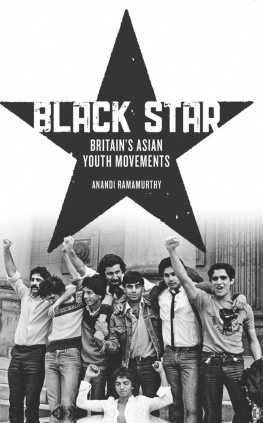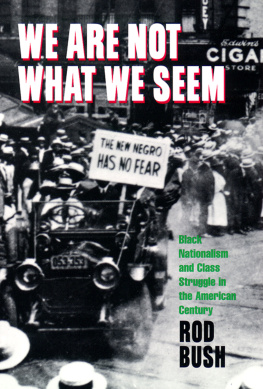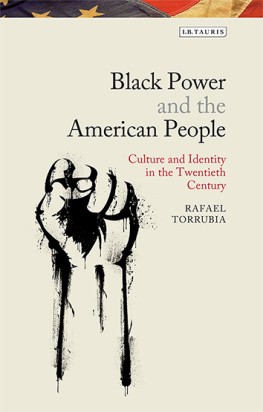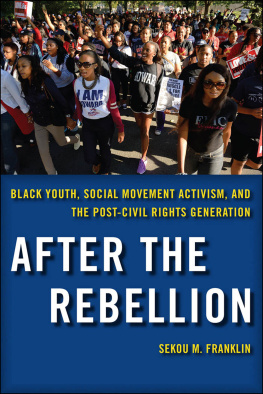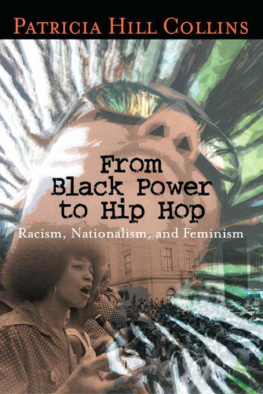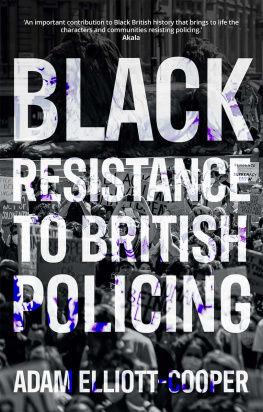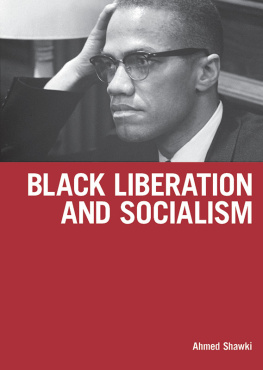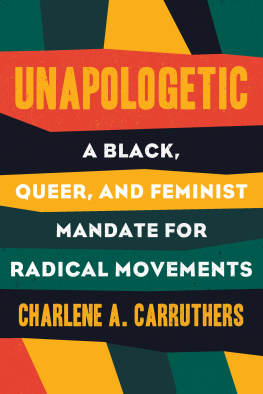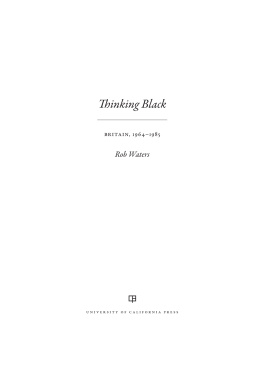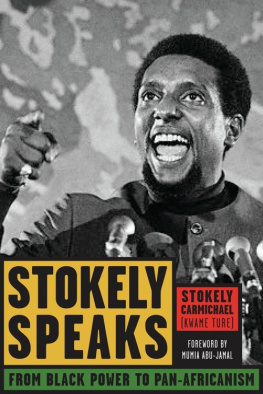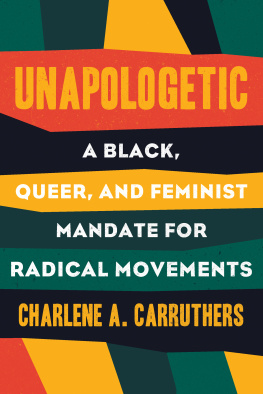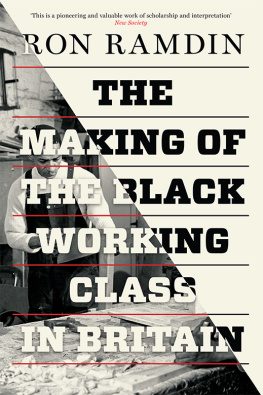First published 2013 by Pluto Press
345 Archway Road, London N6 5AA
www.plutobooks.com
Distributed in the United States of America exclusively by
Palgrave Macmillan, a division of St. Martins Press LLC,
175 Fifth Avenue, New York, NY 10010
Copyright Anandi Ramamurthy 2013
The right of Anandi Ramamurthy to be identified as the author of this work has been asserted by her in accordance with the Copyright, Designs and Patents Act 1988.
Every effort has been made to trace copyright holders and to obtain their permission for the use of copyright material in this book. The publisher apologises for any errors or omissions in this respect and would be grateful if notified of any corrections that should be incorporated in future reprints or editions.
British Library Cataloguing in Publication Data
A catalogue record for this book is available from the British Library
ISBN 978 0 7453 3349 6 Hardback
ISBN 978 0 7453 3348 9 Paperback
ISBN 978 1 8496 4945 2 PDF eBook
ISBN 978 1 8496 4947 6 Kindle eBook
ISBN 978 1 8496 4946 9 EPUB eBook
Library of Congress Cataloging in Publication Data applied for
This book is printed on paper suitable for recycling and made from fully managed and sustained forest sources. Logging, pulping and manufacturing processes are expected to conform to the environmental standards of the country of origin.
10 9 8 7 6 5 4 3 2 1
Typeset from disk by Stanford DTP Services, Northampton, England Simultaneously printed digitally by CPI Antony Rowe, Chippenham, UK and Edwards Bros in the United States of America
Acknowledgements
Thank you, Tariq, for sharing your experiences of political activism with me throughout the 24 years I have known you.
This book first started life as the development of an archive and I am thankful to all those who shared their materials with me. Matloob, your belief in the importance of preserving history for the future has left documents which are testimony to the activities of activists in Sheffield, Bradford, Birmingham and Manchester. Thank you to Anwar (Qadir), Jani and Marsha for sharing documents from the Saathi Centre. Anwar (Ditta), your need to collect everything as evidence when you found the state unwilling to believe you has left an archive which will keep your struggle alive for the future. Thank you also to Tariq, Mukhtar, Jayesh, Greg, Steve, Fahim and Zulfi for sharing what they had.
Many others gave their time through allowing me to interview them and consult with them. A number of activists who gave me advice and shared their experiences with me have died during the research for this book. I would like to give them special thanks for sharing a past which I hope lives on through the book. They are Saeed Hussain, Anwar Qadir, Quamrul Kabir, Marsha Singh, Vasant Patel, Dave Stark, Geoff Robinson, Steve Cohen. Other people who shared their experiences through interviews and conversations are Jani Rashid, Noorzaman Rashid, Gurnam Singh, Jayesh Amin, Shanaaz Ali, Harjinder Gata Aura, Mohsin Zulfiqar, Nilofer Shaikh, Kuldeep Mann, Anwar Ditta, Matloub Husayn-Ali-Khan, Mukhtar Dar, Jasbir Singh, Anne Singh, Bhupinder Bassi, Balvinder Bassi, Sheera Johal, Naeem Malik, Amrit Wilson, Sarbjit Johal, Balraj Purewal, Ruth Bundey, Francis Webber, Gareth Pierce, Dave Harrison, Paul Kelemen, Mike Loft, Suresh Grover, Bharat Mehta, Ruchi Tandon, Fahim Qureshi, Aki Nawaz, John Boolten, Greg Dropkin, Dilip Parmar and Aleema Svoo.
Thank you also to my children, Neelam, Mishaal and Waris, for putting up with a very distracted mother.
1
Introduction
Over the last 20 years there has been a transformation in the way in which the South Asian community has been constructed by mainstream public discourse as well as in the way it has seen itself. The primary identity with which South Asians are framed in Britain today is a religious one. Academic scholarship research on South Asians has been focused within religious or cultural identity discourses (Ahmad 1998, Benson 1996, Handa 2003, Maira 2002, Sharma et al. 1996), its varied political traditions rarely recalled. The development of this book was motivated by the desire to give expression to forms of political and cultural identity amongst South Asians that hailed from a left and anti-colonial tradition but were rooted in a concern for the transformation of British society. In 2003, following the start of the war on terror, the ways in which South Asians were represented became further entrenched to the point where the representations felt so discordant to myself and many others of my generation that I decided to collect the history of the Asian youth movements (AYMs) in Britain in order to represent a different picture of South Asians one in which identities were focused around a commitment to a set of political beliefs and values that had increasingly come under attack since the collapse of the Soviet Union. As someone who was involved in the anti-racist movement in the late 1980s and early 1990s, I knew many of those who had been active in the youth movements of the mid 1970s and early 1980s a period which marked the height of the anti-racist movement in Britain. Constructing a digitised archive of extant materials was to leave these documents as proof of a different political identity and history. This book makes use of this archive as well as oral histories that I later collected to present the history of a movement that was the first organisation of South Asian youth in Britain, a movement that was driven not by religious or cultural identities but by a left tradition and anti-imperialism.

